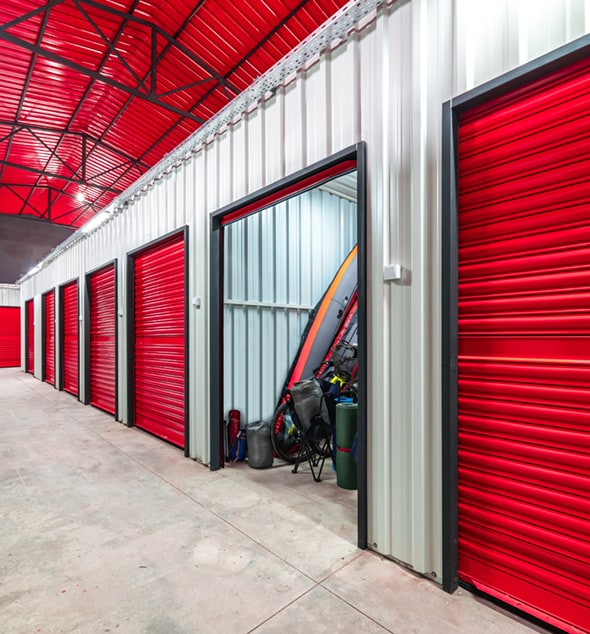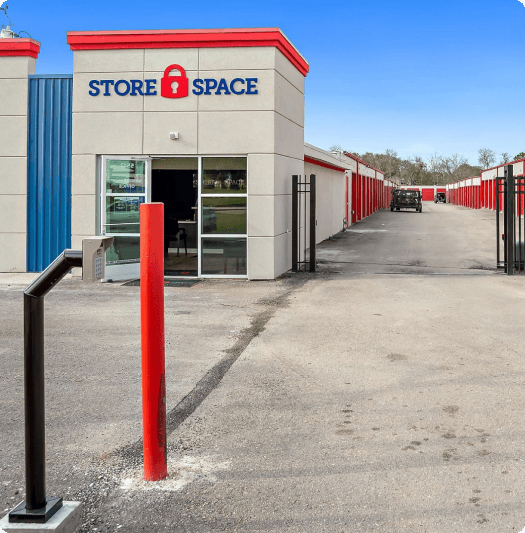6 Best Places to Live in St. Louis

Located on the banks of the Mississippi River, St. Louis attracts many people searching for a confluence of community and affordable living.
The city is home to notable professional sports teams, an array of parks, endless job opportunities and desirable neighborhoods.
While the needs of a family differ from the wants of a young professional, St. Louis is a good place to live wherever you are in life. Throughout this guide, we will explore the best neighborhoods for families, the best neighborhoods for young professionals, and examine where the safest and most dangerous places in the city are located.
Keep reading to take a tour of St. Louis’s best places to live!
Best Neighborhoods in St. Louis for Young Professionals
If you are a young professional looking to move to St. Louis, you will find a variety of intriguing and interesting neighborhoods to live in. The following are our picks for the best neighborhoods in St. Louis for young professionals, for their array of attractions, proximity to exceptional job opportunities and low median home cost.
Lafayette Square
Just a few blocks from downtown St. Louis, Lafayette Square offers all the benefits of big city living at a much slower pace. Lafayette Park is the nucleus of the neighborhood. Picture a 30-acre spread of green space surrounded by picturesque townhomes. The area is the perfect place for morning dog walks and afternoon runs. The park even hosts a variety of neighborhood events including summer concerts and movie nights.
Lafayette Square is also one of the safest places to live in St. Louis with a crime rating 72% lower than the city’s average. All of this, plus the neighborhood’s proximity to the amenities of downtown St. Louis, make it one of the best places to live in the city.
Central West End
Central West End is commonly referred to as St. Louis’s coolest neighborhood. The neighborhood combines vibrant parks with collections of restaurants, pubs and attractions. Those living in Central West End can walk to Forest Park, shop on Euclid Avenue and enjoy a night out on the town, all without venturing too far from their apartment or home. Just like Lafayette Square, this fun and charming neighborhood also hosts its own events including Greek festivals, Halloween celebrations and even a microbrew fest.
Central West End is also a great place to live for students. The neighborhood is located very close to St. Louis University, and it offers students an easy commute, plenty of coffee shops well suited for early morning and late-night studying, as well as a variety of restaurants perfect for grabbing a meal with friends.
Soulard
If you’re a young professional craving nightlife, look no further than St. Louis’s Soulard neighborhood. The neighborhood is teeming with pubs, bars and a variety of festive celebrations. It even puts on one of the largest Mardi Gras events in the United States.
More than just a hotspot for parties, the Soulard neighborhood also provides access to many high salaried jobs, affordable housing and quick access to most of St. Louis by use of I-55. Better yet, the average median home price is well below the national average at $207,300 according to AreaVibes.com.
Best Neighborhoods in St. Louis for Families
If you’re looking into moving your family to St. Louis, you will find several areas that are enjoyable and safe for your children and parents. The following are our picks for the best neighborhoods in St. Louis for families. These three neighborhoods made our list for their low crime rating, proximity to stellar education opportunities and their array of family-fun attractions.
The Hill
The Hill is an affordable neighborhood with strong Italian roots. Today, these roots are honored by the neighborhood’s powerful sense of community and by its many family-owned markets and restaurants. Notable restaurants in the area include Favazza’s on the Hill and Charlie Giotto’s on the Hill. The Hill neighborhood is also well known for its walkability and connected main streets.
Housing in The Hill is also very affordable at a median home price 17% lower than the national average. Those with younger children will also be pleased to know that several exceptional private schools are located close to The Hill with John Burroughs School and Thomas Jefferson School being the highest rated of them all.
Lindenwood Park
Arguably one of the safest neighborhoods in all of St. Louis, Lindenwood Park is a great place to live for families looking to move to the city. The neighborhood’s namesake, Lindenwood Park, is great for family trips outdoors, while a variety of nearby restaurants are open to provide a delicious dinner after you get off the trails. You can even take the whole family out for dessert at Murray’s Shaved Ice.
Other attractions in the Lindenwood Park neighborhood include Shrewsbury Lanes, a bowling alley, Grant’s Farm, an animal refuge and historic farm, and Escape St. Louis, an escape room. Where Lindenwood Park is big on fun, the area is also low on cost and crime.
Hi-Pointe
When it comes to family-friendly living, Hi-Pointe offers a little bit of everything. The neighborhood is located close to many attractions including the St. Louis Zoo, Saint Louis Art Museum and Kennedy Forest. The latter of which is a 60-acre plot of forested land perfect for a family outing of birdwatching, hiking and biking. The Hi-Pointe neighborhood is also in proximity to several stellar schools such as Clayton High School, Glenridge Elementary and others throughout the Clayton school district.
Historic brick homes are popular throughout the Hi-Pointe neighborhood. The median home cost in the area is also very affordable at 27% lower than the national average.
Where are the Safest Places in St. Louis?
The safest neighborhoods in St. Louis are in the southern and southwestern portions of the city. These areas include neighborhoods such as Lindenwood Park, St. Louis Hills, and Princeton Heights.
Where are the Most Dangerous Places in St. Louis?
The most dangerous neighborhoods in St. Louis are generally located near downtown. Some threatening places to avoid include the Peabody-Darst-Webbe, Old North Saint Louis, Wells-Goodfellow, Academy and Hamilton Heights neighborhoods.
According to areavibes.com, crime in these neighborhoods can be up to 152% higher than the average crime rate in St. Louis. Since St. Louis has one of the highest average crime rates in the nation, these neighborhoods are very dangerous to live in.
The following table compares these neighborhoods in terms of violent crimes per 100k people. The table also uses St. Louis as a baseline comparison.
| St. Louis Neighborhood | Violent Crimes Per 100k People |
| Peabody-Darst-Webbe | 5,081 |
| Old North Saint Louis | 4,169 |
| Wells-Goodfellow | 4,119 |
| Academy | 4,020 |
| Hamilton Heights | 3,986 |
| St. Louis | 2,016 |
*Data collected from AreaVibes.com
What are the best areas in St. Louis?
This is a hard question to answer. From family-fun to tourist attractions to nightlife, St. Louis has it all, and your opinion on what is the best area of St. Louis will vary depending on what you are looking for.
For example, if you are a tourist visiting St. Louis you may find downtown St. Louis or Midtown to be the best area of the city. In these parts of St. Louis, you will find many attractions and historic landmarks including Gateway Arch National Park, the Dred Scott Old Courthouse, and the City Museum.
If you are a sports fan, you will likely find St. Louis Ballpark Village or the Enterprise Center to be the best area of the city.
Or, if you are looking for the best area for family-fun, the Hi-Pointe neighborhood is a great place to start. Families can visit Forest Park, grab a bite to eat at one of the area’s many restaurants and then catch a movie at Hi-Pointe Theater.
Those looking for nightlife will also find much to love about St. Louis. The city is even home to several bars that stay open after 2 a.m. If you are looking to party the night away (and the early morning), start by checking out Handlebar on Manchester.
If you're looking for some great food in town, check out the St Louis local favorite foods.
Where Can I Rent Storage?
Well, that’s an easy one! If you’re ready to make the move after reading about the best places to live in St. Louis, you may find yourself in need of self-storage once you arrive. Store Space is always close by to help.
Simply stop into one of our nearby facilities, complete a rental online or give us a call before your big move to set up a reservation. Yes, it’s that easy to rent affordable storage in the St. Louis area.
We’ll see you soon!







